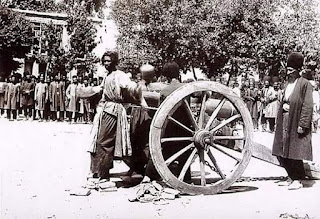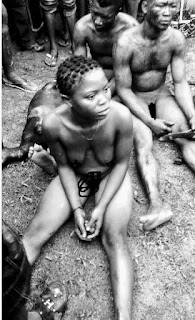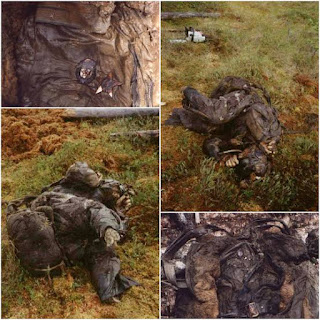A US Marine gives a cigarette to a Japanese soldier buried in the sand. Iwo Jima, 1945.
One of the many bloodiest battles during the Pacific war. The Battle of Iwo Jima was one of the first battles to take place on the Japanese homeland.
The 36 day long battle for island resulted in around 26,000 American casualties including around 7,000 dead.
It's estimated that 18,500 Japanese soldiers lost their lives during the brutal fighting for the volcanic island.
A U.S. Marine approaches a Japanese soldier on Iwo Jima, Japan during World War II.
The Japanese soldier was buried for 1 1/2 days in this shell hole playing dead and ready with a live grenade inches away from his hand.
The Marines feared he might be further booby trapped underneath his body after knocking the grenade to the bottom of the shell hole.
Promising no resistance, the prisoner is given a cigarette he asked for and was dragged free from the hole. Iwo Jima, March 16, 1945
Source United States Marine Corps


.jpg)

.jpeg)






Comments
Post a Comment